Extracted from materials included in the forthcoming publication “The Silent Pilgrimage: Emha Ainun Nadjib, A Lifelong Journey Of Faith” (Jalan Sunyi Emha) by Ian L. Betts
Emha’s body of work includes plays, essays and poetry and music albums with the Kiai Kanjeng ensemble. His books of poetry include Sesobek Buku Harian Indonesia and Lautan Jilbab, and at the time of writing his latest collections were Trilogi Doa Mencabut Kutukan, Tarian Rembulan and Kenduri Cinta.[1]
Aside from numerous plays, many essays have also been published including Sastra Yang Membebaskan (1985), Indonesia Bagian Dari Desa Saya (1994) and Mati Ketawa Cara Reformasi (1998).[2]
Emha Ainun Nadjib, according to Australian publicity materials, has undertaken projects in the arts, social development and educational activities in a great many countries, including the Philippines, Malaysia, Japan, Greece, Holland, Germany and the US.
Over the last 30 years Emha Ainun Nadjib has produced 25 anthologies of 800 poems of several genres including social (protest), socio-religious and Sufistic. Much scholarly research conducted in literature for the purpose of thesis writing has concluded that Emha’s poetry has both socio-religious and socio-mystical dimensions.
1953
Muhammad Ainun Nadjib was born in Jombang, East Java on May 27th, 1953, the fourth of fifteen children. ‘Muhammad’ became shortened to ‘M.H.’ and eventually simply ‘Emha’. He is also known as ‘Cak Nun’, ‘Cak’ being a familiar but respectful term for older brother.
1969
Emha published his poems for the first time in 1968 or, more exactly, in 1969 in the Pelopor Yogya daily.
After roaming the streets of Yogyakarta day and night, struggling with the problems of earning a livelihood, holding many discussions with all kinds of people, particularly with the members of Persada Study Club, Emha finally published his first anthology of poetry in 1975 in stencil print titled “M” Frustasi (the Frustration of “M”). In the same year, together with several friends, he established Teater Dinasti, a theatre company. By then he had established himself as a leading figure in Yogyakarta’s avant-garde poetry scene
1970-75
Emha spent these five years living on Jalan Malioboro, Yogyakarta, while studying literature with a teacher he revered, Umbu Landu Paranggi, a Sufi who led a mysterious life and who had a major influence on Emha. Yogyakarta is now home for Emha and a base for Kiai Kanjeng.
Emha then began to work in Yogyakarta’s multi-media arts scene with fellow activist Halim MD.
Worked with Sanggarbambu, was active in the Dinasti Theatre group and produced and performed in a substantial repertoire of works. These included Geger Wong Ngoyak Macan (1989, which dealt with the government of ‘King Soeharto’), Patung Kekasih (1989, on the development of personality cults), Keajaiban Lik Par (1980, about the exploitation of the people by various modern institutions) and Mas Dukun (1982, concerning the failure of modern leadership institutions).
1980s
Emha’s body of work includes plays, essays and poetry and music albums with the Kiai Kanjeng ensemble. His books of poetry include Sesobek Buku Harian Indonesia and Lautan Jilbab, and at the time of writing his latest collections were Trilogi Doa Mencabut Kutukan, Tarian Rembulan and Kenduri Cinta.[1]
Aside from numerous plays, many essays have also been published including Sastra Yang Membebaskan (1985), Indonesia Bagian Dari Desa Saya (1994) and Mati Ketawa Cara Reformasi (1998).[2]
Emha Ainun Nadjib, according to Australian publicity materials, has undertaken projects in the arts, social development and educational activities in a great many countries, including the Philippines, Malaysia, Japan, Greece, Holland, Germany and the US.
Over the last 30 years Emha Ainun Nadjib has produced 25 anthologies of 800 poems of several genres including social (protest), socio-religious and Sufistic. Much scholarly research conducted in literature for the purpose of thesis writing has concluded that Emha’s poetry has both socio-religious and socio-mystical dimensions.
1953
Muhammad Ainun Nadjib was born in Jombang, East Java on May 27th, 1953, the fourth of fifteen children. ‘Muhammad’ became shortened to ‘M.H.’ and eventually simply ‘Emha’. He is also known as ‘Cak Nun’, ‘Cak’ being a familiar but respectful term for older brother.
1969
Emha published his poems for the first time in 1968 or, more exactly, in 1969 in the Pelopor Yogya daily.
After roaming the streets of Yogyakarta day and night, struggling with the problems of earning a livelihood, holding many discussions with all kinds of people, particularly with the members of Persada Study Club, Emha finally published his first anthology of poetry in 1975 in stencil print titled “M” Frustasi (the Frustration of “M”). In the same year, together with several friends, he established Teater Dinasti, a theatre company. By then he had established himself as a leading figure in Yogyakarta’s avant-garde poetry scene
1970-75
Emha spent these five years living on Jalan Malioboro, Yogyakarta, while studying literature with a teacher he revered, Umbu Landu Paranggi, a Sufi who led a mysterious life and who had a major influence on Emha. Yogyakarta is now home for Emha and a base for Kiai Kanjeng.
Emha then began to work in Yogyakarta’s multi-media arts scene with fellow activist Halim MD.
Worked with Sanggarbambu, was active in the Dinasti Theatre group and produced and performed in a substantial repertoire of works. These included Geger Wong Ngoyak Macan (1989, which dealt with the government of ‘King Soeharto’), Patung Kekasih (1989, on the development of personality cults), Keajaiban Lik Par (1980, about the exploitation of the people by various modern institutions) and Mas Dukun (1982, concerning the failure of modern leadership institutions).
1980s
In 1980 he introduced the term “contextual literature” which worked to reject the standardisation (universalisation) of, and elitism in, the arts.
While the debate over contextual literature had not been settled, Emha went on to incite another controversy in 1984 by introducing the concept of ‘Literature of Liberation’. Essays on the Literature of Liberation were collected in a book in 1984 and the debates over it continued until 1989.
Became known for as his sharp political comment, which earned him a certain degree of notoriety during the later Soeharto years, and for his dynamic live performances.
Emha also participated in multi-cultural theatre in the Philippines (1980), the International Writing Program at the University of Iowa, USA (1984), The International Songwriters Festival, Rotterdam (1984) and the Festival Horizonte III in West Berlin, Germany (1985).
In terms of poetry the period from the late 1970s to the late 1980s was one of the most creative and productive of Emha’s career. During this period Emha published several anthologies of poems. They included Sajak-sajak Sepanjang Jalan (Poems Along the Road) 1977, Tak Mati-Mati (The Immortal) 1978, Tuhan Aku Berguru Pada-Mu (O Lord, I am Your Disciple) 1980, Kanvas (Canvas) 1980, Tidur Yang Panjang (undated) (Long Sleep), Nyanyian Gelandangan (Song of The Homeless) 1982, 99 Untuk Tuhanku (99 For My Lord) 1984, Iman Perubahan (Faith in Change) 1985-1986, Isra’ Mi’raj Yang Asyik (Fascinating Ascension) 1986, Cahaya Maha Cahaya (Light from Super Light) 1988, Syair Lautan Jilbab (Verses from the Sea of Veils) 1989, Syair-Syair Asmaul Husna (Poems Celebrating the Finest Names, the 99 names of God) 1984-1990, Syair Lembu (Poem about a Cow) undated, Minuman Keras Nasibku (Strong Drink is My Lot) 1987-1989, Seribu Masjid Satu Jumlahnya (One Thousand Mosques, One in Number) 1990, Suluk Pesisiran (Chant of the Coastal Area) 1990 and others.
1989
Padhang mBulan or Full Moon movement established. Padhang mBulan is a monthly gathering that takes place in Jombang, East Java, attended by thousands of grassroots supporters eager to be present for the music, the poetry, the Islamic devotional aspects and the socio-political discourse.
Later, a similar gathering, Mocopat Syaafaat would be established for Yogyakatra and others at Semarang, Malang etc.
1990
With the Salahudin Theatre Group produced Santri-Santri Khidhir in 1990, which was performed on the field of the Gontor Pesantren with the participation of all the santri or students as well as an audience of around 35,000.
Produced Lautan Jilbab or the Sea of Veils, which was performed widely in Yogyakarta, Surabaya and the Sulawesi capital, Makassar (then still named Ujung Pandang). It is one of his best-known works.
Frequently on TV for special concert events, his own talkshow Gardu and daily programmes during the Ramadhan fasting month. Issued a great number of CDs and cassettes.
1992
In 1992 came Perahu Retak or The Cracked Boat This dealt with the situation of Indonesia’s New Order Soeharto government, but set amid the conflicts of the period prior to the rising of the empire of Mataram.[3] In 1993 came Kiai Sableng dan Baginda Faruq. Many books were also published including Sidang Para Setan, Pak Kanjeng, Duta Dari Masa Depan and others. Of these books were sixteen volumes of poetry as well as at least thirty collections of essays.
1994
Recipient of the prestigious Adam Malik Award
1996-97
Fully engaged in the reform movement and by now a leading intellectual force, Emha goes on TV for his Gardu shows, a format later widely copied.
1998
Emha is among nine Muslim leaders invited to meet with President Soeharto prior to his resignation. Emha’s role in facilitating Soeharto’s smooth exit is widely misunderstood and he is reviled in many quarters.
2000
Emha established the monthly gathering known as the ‘Kenduri Cinta’ gathering or the Feast of Love designed to engender love among people affected by dispute, poverty, displacement or other social pressure through a gathering accompanied by music, Shalawat, poetry and discourse.
2002
During recent years Emha has travelled abroad, particularly to Australia, to give readings of his poetry at ‘Poetry & Politics: Voices of Indonesia’ (“Indonesia's foremost modern poet”)
Participated in the Australia Indonesia Poetry Exchange. The committee wrote that Emha Ainun Nadjib had had many years of involvement in Indonesian literary circles. His body of work includes music, poetry and social service with community organisations and the education arenas of Indonesia.
Sydney Writers' Festival. Emha was ‘known as a mystical poet and political activist.’ Similarly it was stated that in Java, Emha was a celebrated television talk-show host, essayist and playwright
2003
Emha was described as a ‘renaissance figure of Indonesian culture’. Performed with the Kiai Kanjeng ensemble Adelaide’s Elder Hall on December 13th.
2004
Emha has made a determined effort to bring those ethnic rhythms and traditions to further shores, visiting the UK and Europe in 2004 and 2005.
October
Led a candle-lit gathering at the Hotel Indonesia roundabout right in the centre of Jakarta.
November
First UK tour, with performances at SOAS, Leeds, Manchester and Birmingham.
2005
March – April
The second UK Tour and Europe.
World famous Indonesian Gamelan band performs at Aberdeen’s Rowett Institute to raise funds for the Indonesian Children’s Relief Appeal. Saturday 26th March, 13:00h, Strathcona Hall, Greenburn Road, Rowett Institute.
Recipient of The Muslim News Awards of Islamic Excellence
London, Wednesday, March 23, 2005
Aberdeen, Scotland
Cultural Diplomacy in Action
Strathcona Hall, Rowett Institute, Friday, March 26th, 2005
Germany:
Joking In Berlin and National Leadership
Berlin, Wednesday and Thursday, March 30th – 31st, 2005
Kiai Kanjeng in Rome:
Tolerance, Democracy and Creativity
Friday, April 1st, 2005
Workshop at Rome International School
Monday, April 4th, 2005
Poesia Per Un Grande
Kiai Kanjeng’s Arrangement for Il-Papa
Rome, Tuesday, April 5th, 2005
Teramo, Italy
Sophisticated but Uncomplicated
Wednesday, April 6th, 2005
Naples, Italy
Flying the Red-And-White
From The Sumit of Imam Busyiri’s Shalawat to the “Mecca” of Classical Music
Thursday, April 7th, 2005
2006
June
Kompas publishes ‘Jalan Sunyi Emha’ by Ian L. Betts, an account of Emha’s life and work. A A number of events are held to promote the book.
August
Melbourne Writers’ Festival, with Ian L. Betts. Appeared in three panel discussions as well as other sessions and held two interfaith gatherings in Melbourne.
November
Tour of Finland – International Cultural Forum & Amazing Asia Festival
While the debate over contextual literature had not been settled, Emha went on to incite another controversy in 1984 by introducing the concept of ‘Literature of Liberation’. Essays on the Literature of Liberation were collected in a book in 1984 and the debates over it continued until 1989.
Became known for as his sharp political comment, which earned him a certain degree of notoriety during the later Soeharto years, and for his dynamic live performances.
Emha also participated in multi-cultural theatre in the Philippines (1980), the International Writing Program at the University of Iowa, USA (1984), The International Songwriters Festival, Rotterdam (1984) and the Festival Horizonte III in West Berlin, Germany (1985).
In terms of poetry the period from the late 1970s to the late 1980s was one of the most creative and productive of Emha’s career. During this period Emha published several anthologies of poems. They included Sajak-sajak Sepanjang Jalan (Poems Along the Road) 1977, Tak Mati-Mati (The Immortal) 1978, Tuhan Aku Berguru Pada-Mu (O Lord, I am Your Disciple) 1980, Kanvas (Canvas) 1980, Tidur Yang Panjang (undated) (Long Sleep), Nyanyian Gelandangan (Song of The Homeless) 1982, 99 Untuk Tuhanku (99 For My Lord) 1984, Iman Perubahan (Faith in Change) 1985-1986, Isra’ Mi’raj Yang Asyik (Fascinating Ascension) 1986, Cahaya Maha Cahaya (Light from Super Light) 1988, Syair Lautan Jilbab (Verses from the Sea of Veils) 1989, Syair-Syair Asmaul Husna (Poems Celebrating the Finest Names, the 99 names of God) 1984-1990, Syair Lembu (Poem about a Cow) undated, Minuman Keras Nasibku (Strong Drink is My Lot) 1987-1989, Seribu Masjid Satu Jumlahnya (One Thousand Mosques, One in Number) 1990, Suluk Pesisiran (Chant of the Coastal Area) 1990 and others.
1989
Padhang mBulan or Full Moon movement established. Padhang mBulan is a monthly gathering that takes place in Jombang, East Java, attended by thousands of grassroots supporters eager to be present for the music, the poetry, the Islamic devotional aspects and the socio-political discourse.
Later, a similar gathering, Mocopat Syaafaat would be established for Yogyakatra and others at Semarang, Malang etc.
1990
With the Salahudin Theatre Group produced Santri-Santri Khidhir in 1990, which was performed on the field of the Gontor Pesantren with the participation of all the santri or students as well as an audience of around 35,000.
Produced Lautan Jilbab or the Sea of Veils, which was performed widely in Yogyakarta, Surabaya and the Sulawesi capital, Makassar (then still named Ujung Pandang). It is one of his best-known works.
Frequently on TV for special concert events, his own talkshow Gardu and daily programmes during the Ramadhan fasting month. Issued a great number of CDs and cassettes.
1992
In 1992 came Perahu Retak or The Cracked Boat This dealt with the situation of Indonesia’s New Order Soeharto government, but set amid the conflicts of the period prior to the rising of the empire of Mataram.[3] In 1993 came Kiai Sableng dan Baginda Faruq. Many books were also published including Sidang Para Setan, Pak Kanjeng, Duta Dari Masa Depan and others. Of these books were sixteen volumes of poetry as well as at least thirty collections of essays.
1994
Recipient of the prestigious Adam Malik Award
1996-97
Fully engaged in the reform movement and by now a leading intellectual force, Emha goes on TV for his Gardu shows, a format later widely copied.
1998
Emha is among nine Muslim leaders invited to meet with President Soeharto prior to his resignation. Emha’s role in facilitating Soeharto’s smooth exit is widely misunderstood and he is reviled in many quarters.
2000
Emha established the monthly gathering known as the ‘Kenduri Cinta’ gathering or the Feast of Love designed to engender love among people affected by dispute, poverty, displacement or other social pressure through a gathering accompanied by music, Shalawat, poetry and discourse.
2002
During recent years Emha has travelled abroad, particularly to Australia, to give readings of his poetry at ‘Poetry & Politics: Voices of Indonesia’ (“Indonesia's foremost modern poet”)
Participated in the Australia Indonesia Poetry Exchange. The committee wrote that Emha Ainun Nadjib had had many years of involvement in Indonesian literary circles. His body of work includes music, poetry and social service with community organisations and the education arenas of Indonesia.
Sydney Writers' Festival. Emha was ‘known as a mystical poet and political activist.’ Similarly it was stated that in Java, Emha was a celebrated television talk-show host, essayist and playwright
2003
Emha was described as a ‘renaissance figure of Indonesian culture’. Performed with the Kiai Kanjeng ensemble Adelaide’s Elder Hall on December 13th.
2004
Emha has made a determined effort to bring those ethnic rhythms and traditions to further shores, visiting the UK and Europe in 2004 and 2005.
October
Led a candle-lit gathering at the Hotel Indonesia roundabout right in the centre of Jakarta.
November
First UK tour, with performances at SOAS, Leeds, Manchester and Birmingham.
2005
March – April
The second UK Tour and Europe.
World famous Indonesian Gamelan band performs at Aberdeen’s Rowett Institute to raise funds for the Indonesian Children’s Relief Appeal. Saturday 26th March, 13:00h, Strathcona Hall, Greenburn Road, Rowett Institute.
Recipient of The Muslim News Awards of Islamic Excellence
London, Wednesday, March 23, 2005
Aberdeen, Scotland
Cultural Diplomacy in Action
Strathcona Hall, Rowett Institute, Friday, March 26th, 2005
Germany:
Joking In Berlin and National Leadership
Berlin, Wednesday and Thursday, March 30th – 31st, 2005
Kiai Kanjeng in Rome:
Tolerance, Democracy and Creativity
Friday, April 1st, 2005
Workshop at Rome International School
Monday, April 4th, 2005
Poesia Per Un Grande
Kiai Kanjeng’s Arrangement for Il-Papa
Rome, Tuesday, April 5th, 2005
Teramo, Italy
Sophisticated but Uncomplicated
Wednesday, April 6th, 2005
Naples, Italy
Flying the Red-And-White
From The Sumit of Imam Busyiri’s Shalawat to the “Mecca” of Classical Music
Thursday, April 7th, 2005
2006
June
Kompas publishes ‘Jalan Sunyi Emha’ by Ian L. Betts, an account of Emha’s life and work. A A number of events are held to promote the book.
August
Melbourne Writers’ Festival, with Ian L. Betts. Appeared in three panel discussions as well as other sessions and held two interfaith gatherings in Melbourne.
November
Tour of Finland – International Cultural Forum & Amazing Asia Festival
[1] WHAT'S ON, June - July 2002, Poetry & Politics: Voices of Indonesia, with Emha Ainun Nadjib et al, Hosted by Harry Aveling
[2] Australia Indonesia Poetry Exchange 2002
[3] For the history of this and other empires that once held sway over the territory now known as Indonesia, see Mochtar Lubis “The Land Under the Rainbow.”

































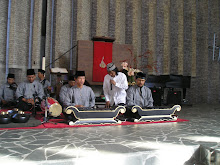
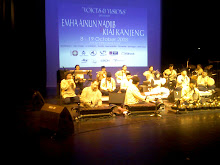

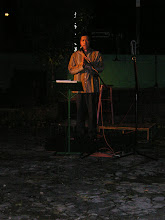



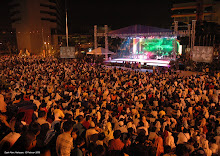
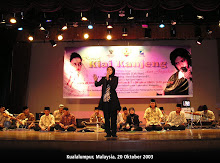
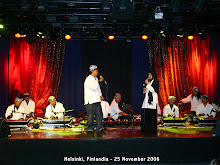.jpg)



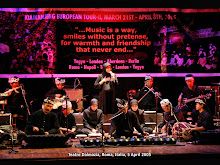


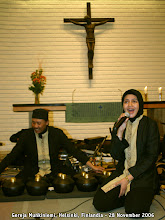.jpg)

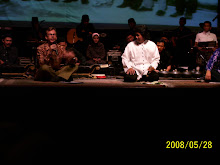.jpg)
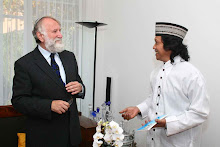
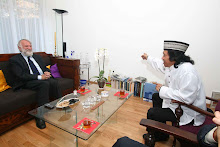
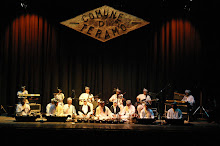


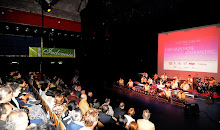

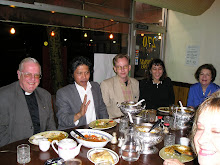


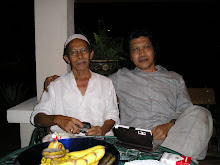
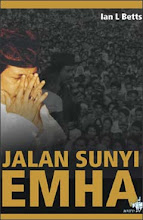
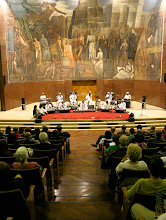
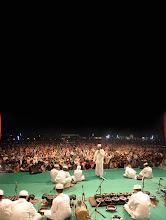

No comments:
Post a Comment